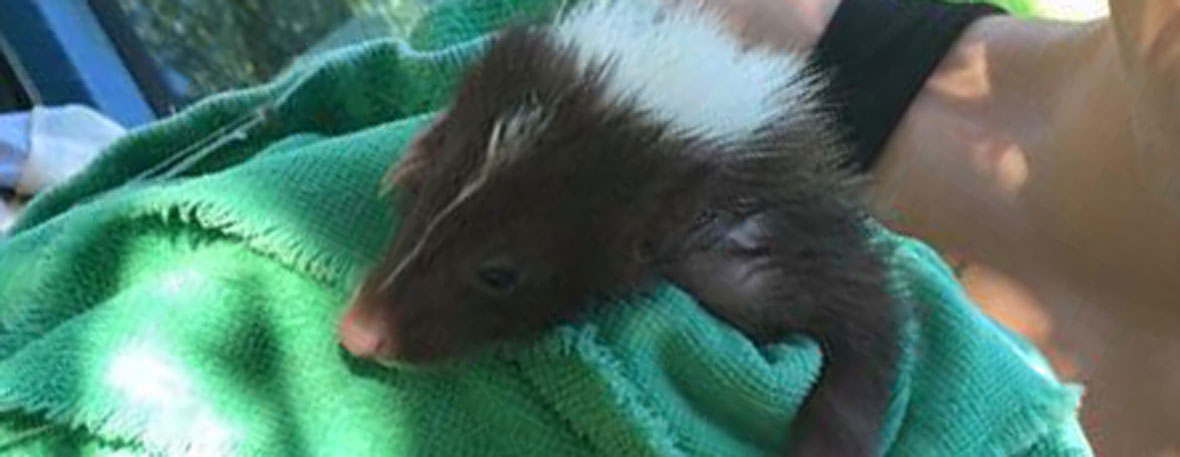Do all skunks have rabies?
Skunks can be recognized easily by their black and white coats with their signature scent. It is hard to miss them. However, people also fear that when they see a skunk in the yard that their pets or they will be at risk of getting rabies. However, even if the skunks have became one of the most common carriers of rabies that you can find around you, you are only at risk if you meet a rabid skunk.

Rabies is a disease that is caused by a virus which infects the central nervous system in mammals. Even though skunks are carriers of rabies, they are only able to transmit the virus to other animals if they are rabid. This means that the virus is active and no longer dormant. Rabies will be transmitted through the saliva if the skunk bites an animal. The skunk is not able to spread rabies through feces, urine or its unpleasant spray even when the skunk is already rabid.
When the skunk is rabid, it will show two types of behavior. It can be a furious skunk that shows aggressive behavior or it can be one that does not show any fear towards animals and humans. The furious rabies is the most common, and it is when the skunk is aggressive and has foam in the mouth. This is the one that is likely to lead to rabies when it bites. When the skunk wanders in the yard and it looks as if it is fearless about your presence or if it seems disoriented, then it may have a less aggressive form of rabies. When a skunk is healthy, it is going to run away from pets and people, and it will shoot the foul smelling spray in order to keep the threat away.
It is a common belief that most skunks will carry rabies, but this is not true. Sometimes the skunk may contract the rabies and not show the signs for 6 months. However, sometimes even the infected skunk may not spread the rabies if the disease is not active.
When it comes to rabies in skunks, you should know what is true and what is a myth. Foaming of the mouth is not always a sure sign of rabies. It may also be a symptom of round worms, coccidian, distemper, liver failure, allergies, epilepsy, herpes and diabetes.
If you get bitten by a rabid skunk, it does not always mean that you are going to die. At least 70 percent of the people who have been bitten by a skunk did not get sick and did not contract rabies if they followed the right instructions of immediate and proper cleaning. However, you should always talk to the doctor whenever you are bitten by a skunk.
Go back to the Skunk Removal home page or email us for more info about do all skunks have rabies?

